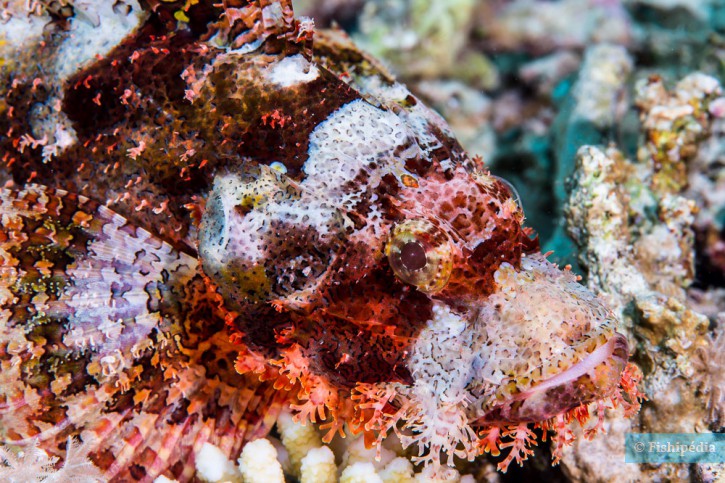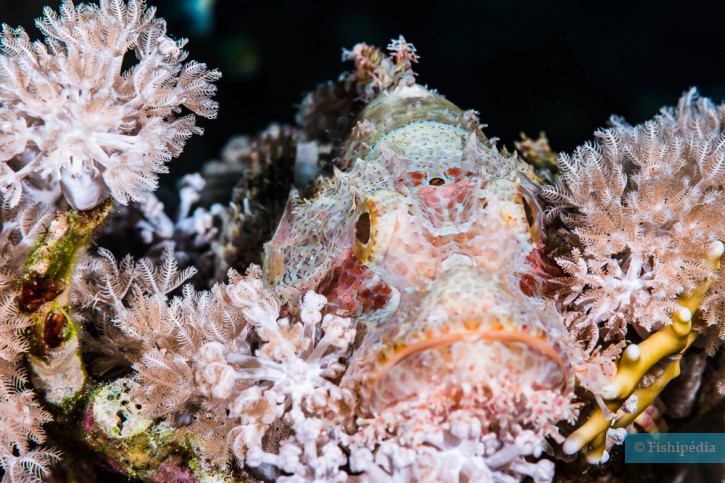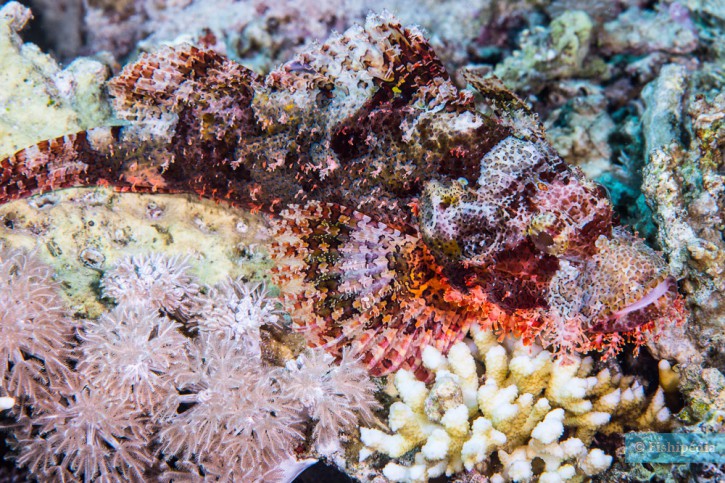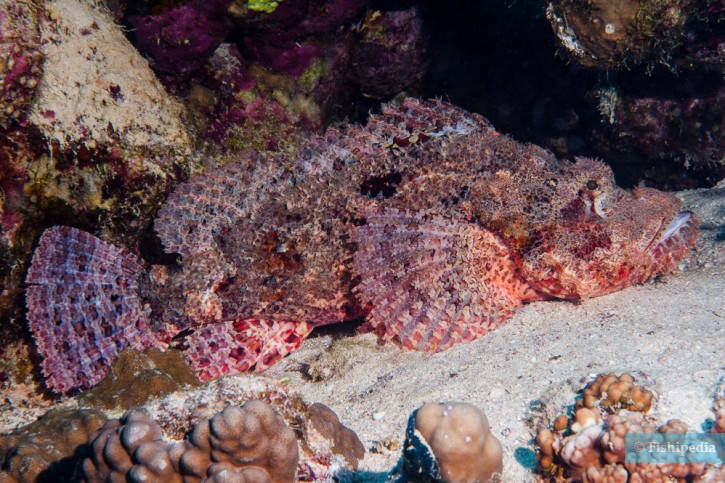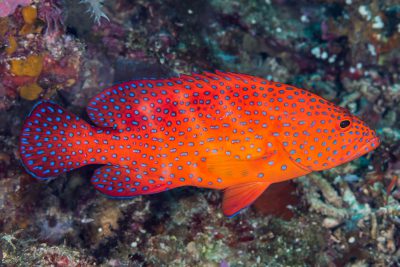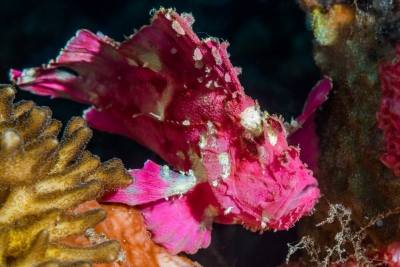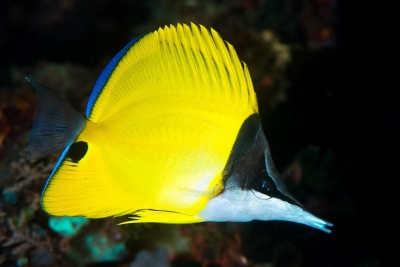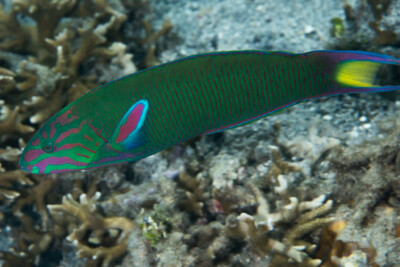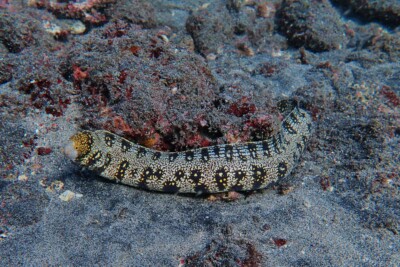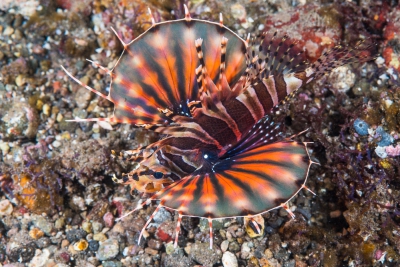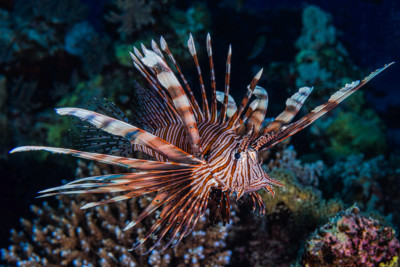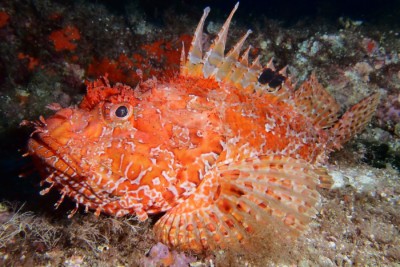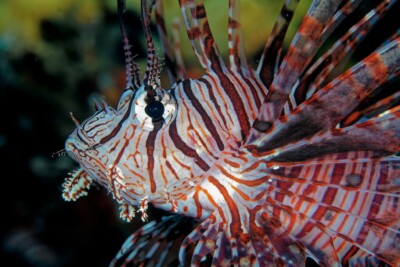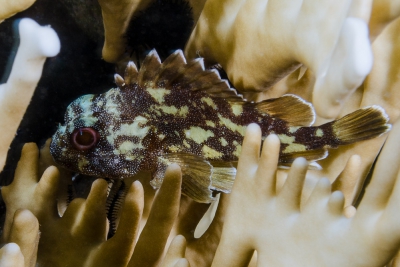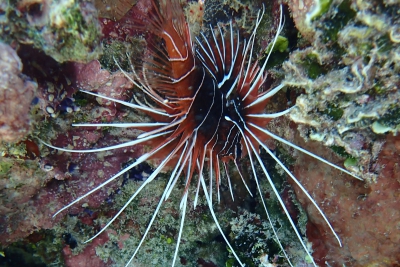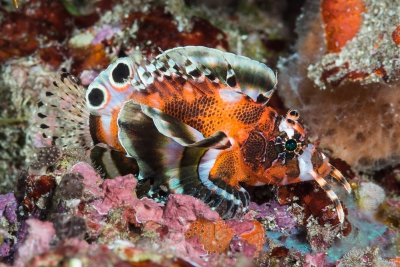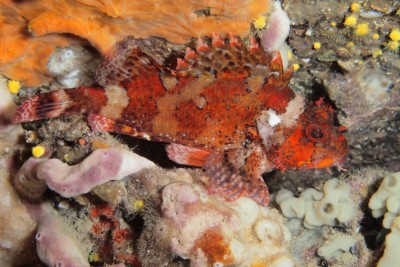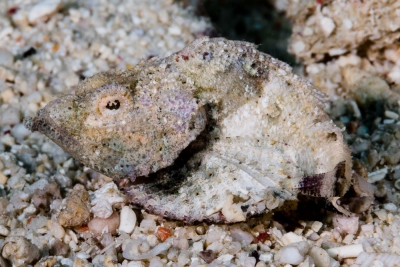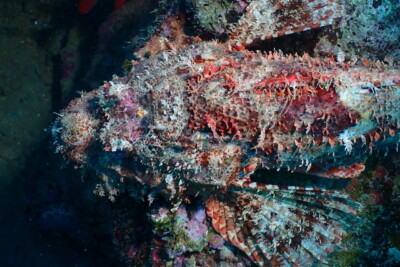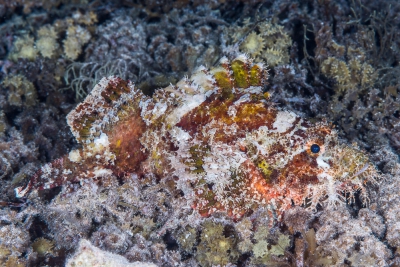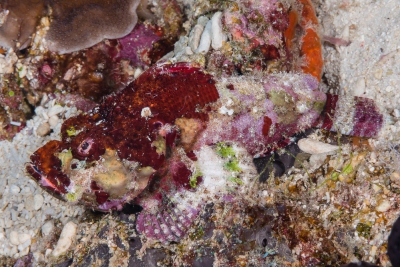tasseled scorpionfish
| Scientific name | Scorpaenopsis oxycephala |
|---|---|
| Descriptor | Bleeker |
| Year of description | 1849 |
| IUCN category (World) | LC |
| Family | Scorpaenidae |
| Genus | Scorpaenopsis |
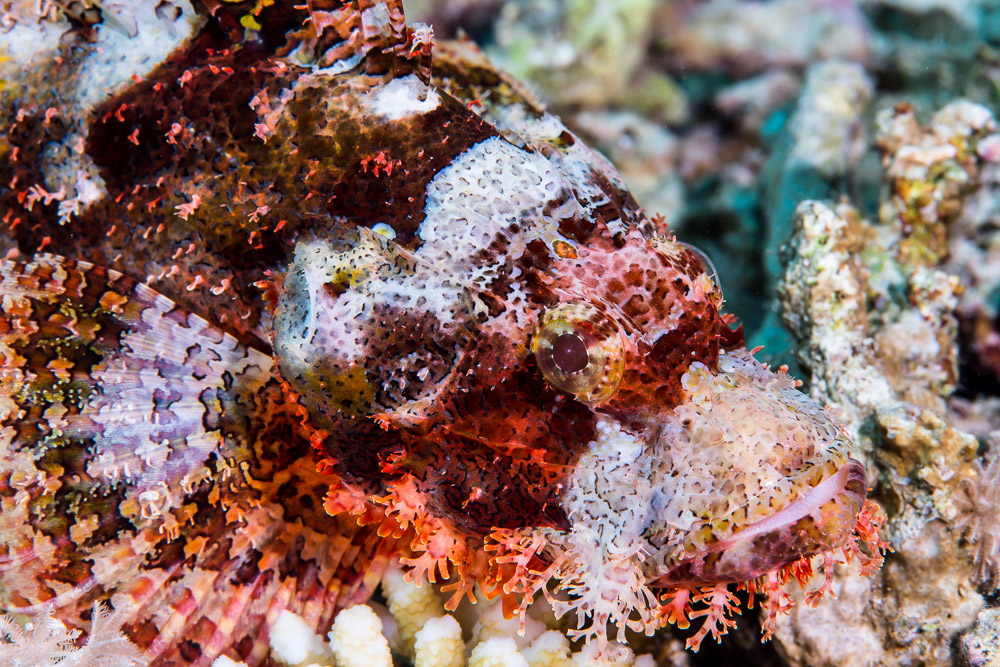

Introduction
The Scorpaenopsis oxycephala is a predator with behavior similar to stonefish. It is relatively common from the Red Sea to the Mariana Islands. Its presence is also confirmed in Micronesia.
Who is it?
Morphology
-
Type
-
Average size30 cm
-
Maximum size36 cm
-
ShapeUnclassifiable
-
Mimicrystone
-
Type
-
Average size30 cm
-
Maximum size36 cm
-
ShapeUnclassifiable
-
Mimicrystone
How to recognize This fish ?
The color of this fish varies depending on the substrate but it is generally brown to reddish-orange. Its mouth is typical of ambush predators, protractile and inclined upwards.
Adults have a kind of "beard" with numerous glands resembling the shape of small corals, which gives it its name. Juveniles are slender and have a particularly imposing dorsal fin.
The third dorsal spine is the longest, the first the shortest.
Sexual dimorphism
Dimorphism not specified.
Behaviour & Life cycle
-
dietcarnivorous
-
Sociabilitysolitary
-
territorialYes
-
Way of livingnocturnal
This species resides on the seabed. It spends most of its time motionless, either half buried in the sand or camouflaged in vegetation.
This fish is a specialized predator in hunting other fish.
Reproduction
-
Reproductionovipare qui pond en eau libre
The tasseled scorpionfish is an oviparous fish that spawns in open water.
Risks for humans
-
VenomousYes
This species is venomous and can cause serious injuries when touched.
Origin and distribution
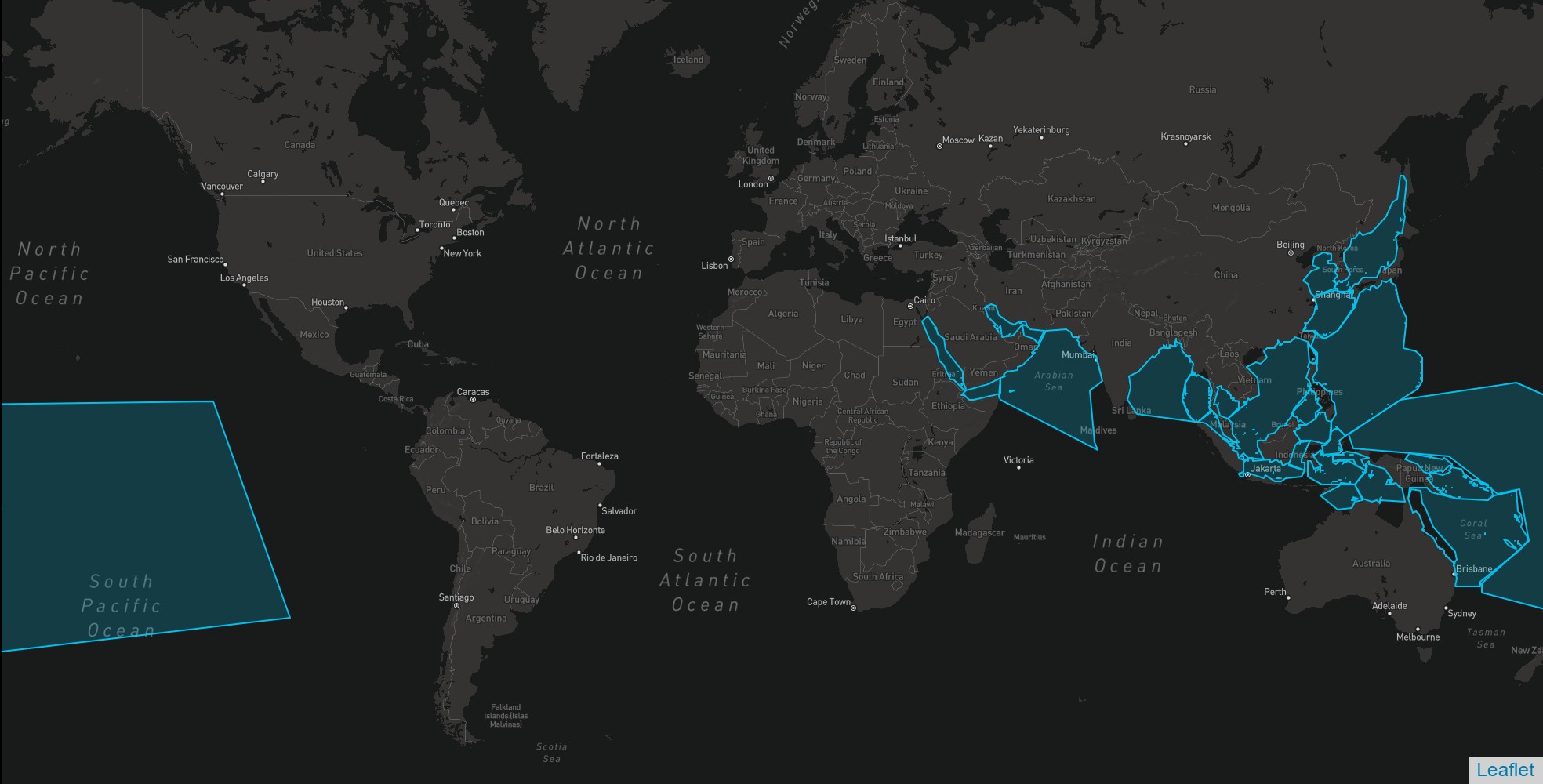
Conservation status of populations (IUCN)
What is its habitat?
Natural environment characteristics
-
Temperature22 - 26 °C
-
Depth1 - 35 m
-
FlowMedium, Slow and Stagnant
Biotope presentation
This fish inhabits slopes and outer clear water reefs. It has been observed several times up to 35m but could also live at much greater depths (up to 400m).
Species of the same biotope
To go further
Sources & Contributions
Participation & Validation
The Fishipedia team and specialist contributors are committed to providing high-quality content. However, although the information comes from scientific sources or testimonials from specialists, the cards may contain inaccuracies.

Benoit Chartrer
Translation
Translation done with the valuable contribution of our translators, who make this information available to a wider audience. We sincerely thank them for their commitment.
Scientific partners
Tags
Species of the same family
Same genus
Species of the same biotope
